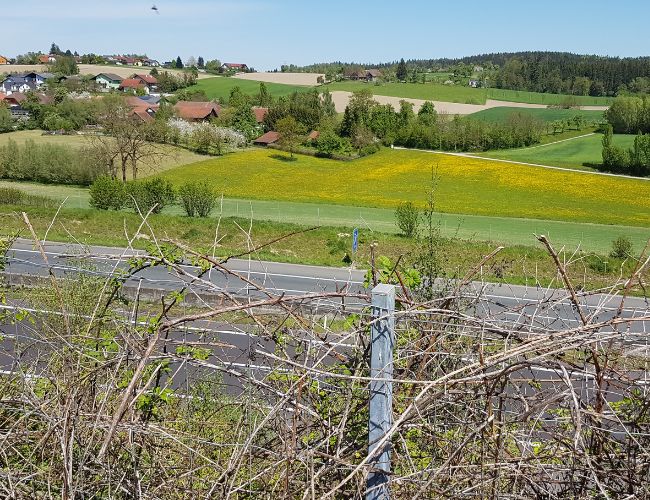 |
| Landscape fragmentation in Aistersheim, AT © Hildegard Meyer |
Some highlights of the Newsletter:
Spotlight on WWF-CEE's Experts
As a nature conservation organization, WWF-CEE is strongly committed to safeguarding biodiversity across Europe, and our involvement in the NaturaConnect project showcases this. Irene Lucius, Regional Conservation Director, underlines WWF engagement, communication, dissemination and capacity building activities within the project and what it means to be the lead of the Danube-Carpathian Transboundary Region case study. Her expertise and efforts are helping to shape the project's direction, making a significant impact in protecting this vital region.
“I am excited to be part of this project which provides top-notch scientific knowledge on natural systems to policy-makers tasked with better connecting areas of high biodiversity value throughout the continent. This will increase the resilience of ecosystems to climate change and other pressures - a super important objective”, says Irene about her involvement in the project.
Fostering Collaboration with the Carpathian Convention:
The first edition of the NaturaConnect newsletter proudly presents our interactive session during the 14th Carpathian Convention Working Group on Biodiversity Meeting. The session was facilitated by Hildegard Meyer, Eléonore Chenevois from WWF-CEE, and Cristian Papp from WWF-RO. The session brought together key stakeholders from the Carpathian Convention community. The Carpathians are part of the Danube-Carpathian Transboundary Region case study within the NaturaConnect project, focusing on co-designing tools, strategies, and capacity for the development of the Trans-European Nature Network (TEN-N). Discussions centered around studying protected areas, ecological connectivity governance, and identifying best practices in the region. The breakout groups explored barriers, funding possibilities, and engagement strategies within the seven Carpathian countries.
Exploring Nature Futures:
The project goes beyond protecting nature for today; it's about planning for the future. The team is studying various scenarios to understand how WWF can best conserve biodiversity and ecosystem services across Europe. By identifying priority areas for new designations of protected areas and connectivity conservation, we aim to develop a coherent Trans-European Nature Network (TEN-N) that is resilient to changes (climate, anthropological, etc.) and benefits society as a whole.
A Bright Future for Nature and People:
- NaturaConnect is an ambitious project with the goal of making a difference for nature and society. We are working together with 22 partner organizations across Europe, including scientific institutions, public authorities and NGOs, to create targeted knowledge and tools that will support shaping a resilient and well-connected network of conserved areas.
- Our commitment to biodiversity conservation, climate action, and sustainability drives us to build a better world. By protecting nature today, we're securing a brighter future for generations to come.
- The project is a Horizon Europe project supporting EU Member States in designing a coherent Trans-European Nature Network (TEN-N) of conserved areas, to help meet the EU Biodiversity Strategy goal of protecting 30% of land in the EU by 2030.
You can subscribe to the future editions of the newsletter here |


